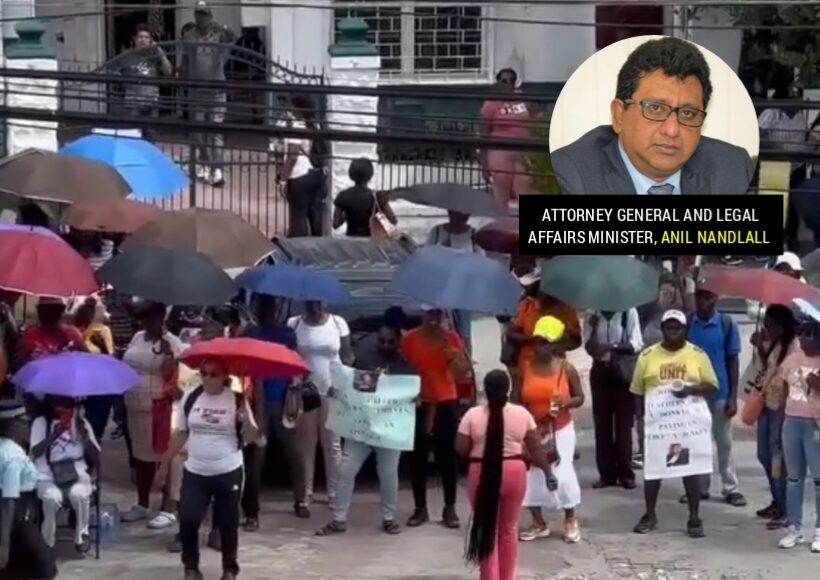Guyana’s Attorney General (AG) and Legal Affairs Minister, Anil Nandlall has condemned the ongoing teachers’ strike as unlawful and conducted in “bad faith.” He maintains that the government, as the employer, has the legal prerogative to withhold salaries from striking public servants.
Outside the Education Ministry on Brickdam in the capital city, a cacophony of blowing whistles, beating drums, singing songs, and displaying placards has become a regular sight as the strike enters its ninth day. The strike, organized by the Guyana Teachers Union (GTU), sees teachers abandoning their duties and taking to the streets to demand improved pay and working conditions.
The government has indicated its plan to reduce funds from the March salaries of striking teachers. This action has led to legal action from the GTU, despite the organization’s pledge to provide compensation to teachers through the assistance of corporate sponsors if salaries are indeed cut.
In response to the union’s move to court, Nandlall, during his recent “Issues in the News” programme, said that the government has a right to deduct monies from those teachers for days not worked.
“In my humble opinion, the government – like every other employer – has a right to levy a deduction against workers who are absent from work without permission, leave or authorisation. That is standard industrial law, standard labour law and standard labour practice,” he said.
The AG also explained the “Right to Strike” is indeed one that is afforded to all workers; however, one must also be cognizant of the limitations of such powers.
“A Right to Strike, like every other right, has responsibilities and conditionalities attached. You have a right to free speech, but you cannot libel me. You have a right to free movement, but you cannot drive down a one-way street. Similarly, you have a right to strike but it doesn’t mean that conditionalities or obligations are not attached,” he said.
He said that one of the conditionalities attached to the right to strike is the right of the employer to deduct wages from the worker(s) who have refused to withhold service.
“One must remember that the contract that underpins an employer/employee relationship is the one of service. So, once those services are not provided, the employer, who is paying for those services, has a right to withhold renumeration, if you, as the employee has decided to withhold your service,” the AG underscored.
He added that it is only logical that such conditionalities are attached, noting that in the absence of limitations, workers would strike “365 days a year” and the employer would still be obliged to pay.
“How can that be the law of any civilised country? It is not! The law is very clear: you withhold your labour; the employer can withhold his pay!”
He further noted that the withholding of service/labour constitutes a “repudiatory breach of contract” – an action that can attract termination of contract.
“That extreme measure is not normally resorted to by the employer, though he can lawfully employ it or resort to it. The resort, which is normally activated by the employer is to deduct wages. And that is the law of Guyana and that is the law of the British Commonwealth,” he said.













